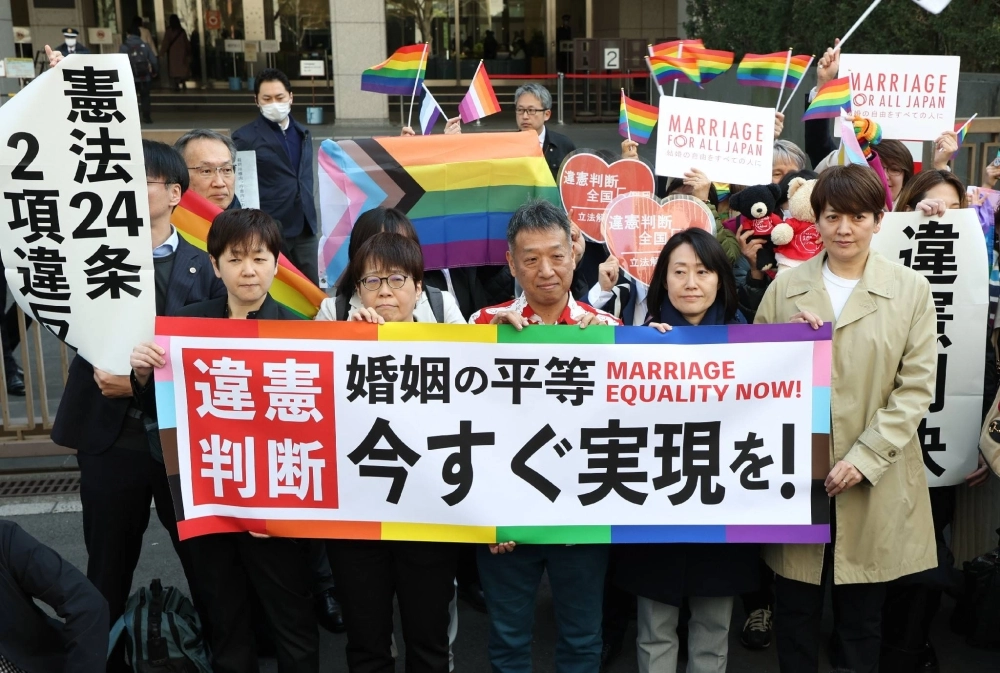The Sapporo High Court on Thursday ruled that a ban on same-sex marriage is unconstitutional, with strong phrasing that is expected to pressure the government and lawmakers for action.
It is the first time a high court has handed down a ruling that said Japan's ban on same-sex marriage is unconstitutional.
The high court judgment followed a similar ruling at the Tokyo District Court earlier on Thursday, which said that the ban on same-sex marriage is in a “state of unconstitutionality” due to the lack of legal protections for same-sex couples. The Tokyo court, however, stopped short of issuing a stronger “unconstitutional” verdict.



















With your current subscription plan you can comment on stories. However, before writing your first comment, please create a display name in the Profile section of your subscriber account page.